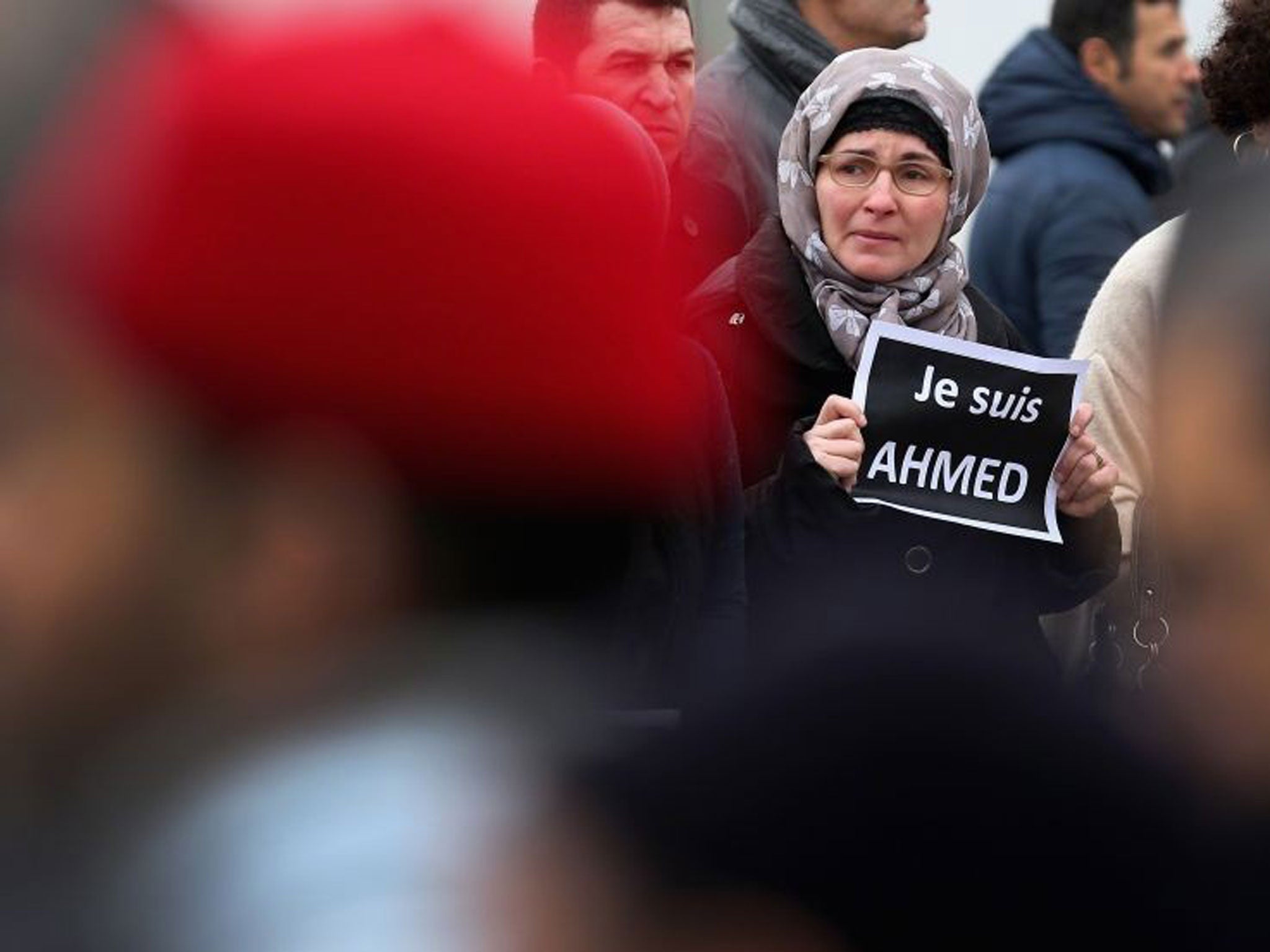Arab Jazz by Karim Miské, translated by Sam Gordon, book review: The battle for Paris
A prescient thriller exposes religious tensions in France

Your support helps us to tell the story
From reproductive rights to climate change to Big Tech, The Independent is on the ground when the story is developing. Whether it's investigating the financials of Elon Musk's pro-Trump PAC or producing our latest documentary, 'The A Word', which shines a light on the American women fighting for reproductive rights, we know how important it is to parse out the facts from the messaging.
At such a critical moment in US history, we need reporters on the ground. Your donation allows us to keep sending journalists to speak to both sides of the story.
The Independent is trusted by Americans across the entire political spectrum. And unlike many other quality news outlets, we choose not to lock Americans out of our reporting and analysis with paywalls. We believe quality journalism should be available to everyone, paid for by those who can afford it.
Your support makes all the difference.The themes of murders in Paris, religious fundamentalism and a threat to multiculturalism might seem all too topical after recent grim events in the French capital. But Karim Miské's remarkable Arab Jazz was, in fact, written two years ago and has already gleaned prestigious French and English awards.
Rightly so, as this is a debut of notable assurance, moving between the less salubrious streets of Paris and the synagogues of New York, delivering considerably more than a gripping narrative. As with so much current crime fiction in translation, Miské has tackled serious sociopolitical issues – the "added value" that has granted an often-frivolous genre a new intellectual clout.
Arab Jazz takes us to a world of bars, second-hand bookshops, kosher sushi and kebabs, in a pungently realised 19th arrondissement, in which people of different (and antithetical) faiths somehow manage to coexist in a fragile détente. But that coexistence is threatened after a particularly savage murder. Ahmed Taroudant is a sensitive individual who loves poetry and novels; his aim is to lose himself by devouring the whole world in a single, uninterrupted story written by others. But dreaming in his flat, he feels what he thinks is a tear striking him on the end of his nose.
He tastes it and discovers to his horror that it is blood dripping from the flat upstairs; it is from the mutilated corpse of his neighbour, Laura Vignole. What makes the killing even more disturbing is something discovered alongside her body: raw pork. This religious element puts Ahmed in the frame for the killing, and things look bad for him. But two detectives, Jean Hamelot and Rachel Kupferstein, are not prepared to take things at face value. As they investigate, they are plunged into a milieu in which drug-trafficking and violent religious hatred undermine the very stability of Paris.
Apart from the sobering topicality the book has retrospectively achieved, this is a vivid, multifaceted picture of an entire community, luminously characterised; the lowlife denizens of Paris have a vitality somewhere between Zola and Elmore Leonard. Key concerns for Miské are the future of multiculturalism (as contentious an issue in France as it is in this country) and implacable religious belief that allows no dissent from its strict tenets.
His own background suggests why this is such a concern for him. Miské was born in Abidjan in 1964 and his mother was a French atheist while his father was a Mauritian Muslim. The author describes himself as a spiritual atheist, but his mixed parentage has helped him understand the dynamics of integration between antipathetic cultures, and he extends understanding (if not always sympathy) to his varied cast of characters.
What makes the book so provocative is its excoriating critique of religious intolerance, a theme examined with some rigour. The dogged coppers Hamelot and Kupferstein are a memorable duo, quirkily characterised – as is the luckless Ahmed, whose only hope they are. And as the detectives peel back layers of prejudice and resentment, we are presented with uncomfortable truths about the clash between tolerant secular Western society and the belief systems enforced in theocratic countries. Arab Jazz is proof that French crime fiction is jostling its way to the top of the noir tree.
Join our commenting forum
Join thought-provoking conversations, follow other Independent readers and see their replies
Comments